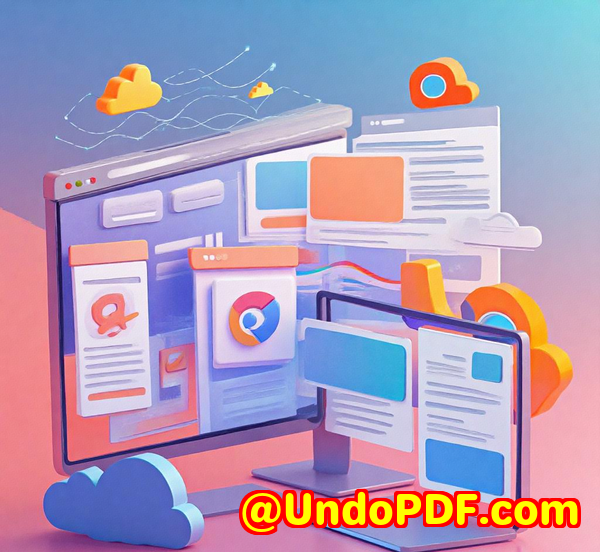imPDF vs Docparser for PDF Table Extraction Which Is Better for FinTech Apps
imPDF vs Docparser for PDF Table Extraction: Which Is Better for FinTech Apps
Meta Description:
Tired of inconsistent PDF table extraction in FinTech workflows? Here’s how imPDF stacks up against Docparserreal talk from hands-on experience.

Every Monday at 9am, the same nightmare.
I’d open my inbox and see a flood of PDFsfinancial reports, client invoices, transaction statements, balance sheets. Dozens of files. Some scanned, some digitally generated. All needed to be parsed, converted, and funnelled into our internal reporting systems by noon.
And every single time, the table data extraction would break somewhere. Wrong columns. Misaligned headers. Random junk characters. You name it. We were using Docparser back then. It workedsort ofbut anything outside its template zone caused chaos.
So I went on the hunt.
And that’s how I found imPDF PDF REST APIs for Developers. This was a game-changer. Especially if you’re building or running FinTech apps where accuracy, speed, and API flexibility aren’t just “nice to haves”they’re non-negotiable.
What imPDF PDF REST APIs Do (And Why Devs Love It)
If you’ve never heard of imPDF before, here’s the quick rundown:
It’s a massive toolbox of REST APIs built for serious developers. From editing PDFs online to converting scanned financial statements into clean Excel filesit handles the full spectrum of document processing.
But what got my attention was the PDF to Table REST API.
That was the pain point for us. And it’s where Docparser started falling short.
With imPDF, you’re not stuck creating rigid templates or uploading training samples just to extract a basic table. Their API interprets structures using smart logic and gives you back actual usable dataheaders intact, rows in place, and no Frankenstein CSVs.
Why imPDF Beats Docparser for PDF Table Extraction
Let’s break this down in plain terms:
1. Handles the Ugly PDFs
Most FinTech data comes from messy PDFs:
-
Statements scanned at 200 DPI
-
Invoices with inconsistent layouts
-
Reports with multi-line headers
Docparser chokes on those. You need to babysit it.
imPDF just eats them.
I threw in some of our worst offenders: scanned PDFs with skewed tables and irregular spacing. imPDF’s OCR Table Recognition REST API handled it like a pro. It mapped headers correctly and gave me structured JSON I could push straight to our dashboard.
2. Zero Training Required
Docparser needs training documents. Time-consuming.
imPDF doesn’t.
You send the PDF to their endpoint. Boomclean output.
It’s literally as easy as:
Even better, they give you a live API Lab where you test files, tweak settings, and get copy-paste ready code in Python, PHP, Node, or curl. That alone saved me hours of fiddling.
3. Developer-First from Day One
Docparser feels like it was built for non-tech teams with light automation needs.
imPDF is built for developers. Full stop.
-
Want to automate with GitHub Actions? Easy.
-
Need to drop into a Zapier flow? Done.
-
Integrate into AWS Lambda? No problem.
Their Postman collection had every call we needed. And the GitHub samples? Super clean.
Real Example: From Static PDFs to Live Data in 10 Minutes
One of our biggest clients sends weekly fund performance PDFs. Their tables include:
-
Multi-level headers
-
Merged cells
-
Totals, subtotals, and footnotes
Docparser mangled it. imPDF nailed it.
I uploaded a sample via API Lab, selected “Table Recognition (OCR+Layout)”, and got back:
-
XLSX output with exact structure
-
Clean CSV for ingestion
-
Structured JSON for fallback workflows
Total time: under 10 minutes. No template tweaking. No drama.
Who Should Use This?
If you’re in FinTech, insurance, accounting, logistics, or anywhere you deal with:
-
PDF reports with structured data
-
Scanned statements or printed forms
-
Invoices from 100 vendors
-
Internal PDF generation flows
You need imPDF.
It’s for dev teams building systems that can’t break on edge cases. Systems that need to scale, automate, and deliver bulletproof document data.
Core Advantages of imPDF
Here’s why I’d pick it over any other PDF API, especially for FinTech use:
-
Huge API Library: From PDF to Excel, HTML, Word, Image, you name itthey cover it.
-
Scalable REST API: Works with any language. Node, Python, PHP, C#, curltake your pick.
-
OCR + Smart Parsing: Not just dumb text extraction. It understands layouts and structures.
-
No Training Needed: Fire-and-forget API. Perfect for dynamic PDFs.
-
Developer Playground: API Lab + code samples = no guesswork.
Bonus: Other Killer Use Cases We’ve Used
Not just table extraction. We’ve now rolled imPDF into 5 different apps:
-
Automated invoice processing (PDF to Excel REST API)
-
PDF report merging and watermarking (Merge + Watermark REST APIs)
-
Secure document distribution (PDF DRM Security REST API)
-
Client-side PDF signing (PDF Signer Cloud Service)
-
On-the-fly PDF conversion from internal UIs (HTML to PDF REST API)
Everything’s handled via a single REST interface. No extra SDKs. No platform lock-in.
My Verdict: imPDF for the Win
If your app deals with financial data, contracts, compliance docs, or anything else in PDF formyou need accurate, reliable table extraction.
I’ve tried Docparser, Tabula, even custom Python scripts.
Nothing came close to imPDF PDF REST APIs for Developers.
It’s built for real-world chaos. It’s API-first. It just works.
Try it for yourselfno credit card, no drama:
Custom Development? imPDF’s Got You Covered
Got a weird requirement? imPDF does custom builds too.
From building PDF printer drivers on Windows to hooking into system-level print queues and OCRing multi-language scans, they’ve seen it all.
They build for:
-
Python, C++, .NET, JavaScript
-
Linux, macOS, Windows
-
iOS, Android
-
Barcode reading, image processing, document layout engines
-
DRM security, PDF signing, digital signatures, and more
Need custom OCR on scanned invoices? Or building a cloud-based PDF viewer with annotation tools?
They’ve probably done it.
Hit them up at their support centre:
FAQ
1. Can imPDF handle scanned PDFs with poor quality?
Yes. imPDF uses advanced OCR and layout analysis to extract tables and content even from low-quality scans.
2. Is imPDF better than Docparser for financial documents?
In my experienceyes. imPDF is more flexible, doesn’t require template training, and handles messy financial tables more accurately.
3. Can I integrate imPDF with Zapier or Integromat?
Absolutely. Since it’s REST API based, you can plug it into any automation tool that supports webhooks or HTTP modules.
4. Is there a free trial for developers?
Yes. You can start testing immediately at https://impdf.com/ using the API Lab.
5. What file formats does imPDF support?
Pretty much everything. PDF, DOCX, XLSX, PPTX, HTML, TXT, JPG, PNG, and more. It even supports converting between them.
Tags / Keywords
-
PDF table extraction for fintech apps
-
imPDF vs Docparser
-
REST API for PDF to Excel
-
OCR table extraction PDF
-
Developer tools for financial document parsing



